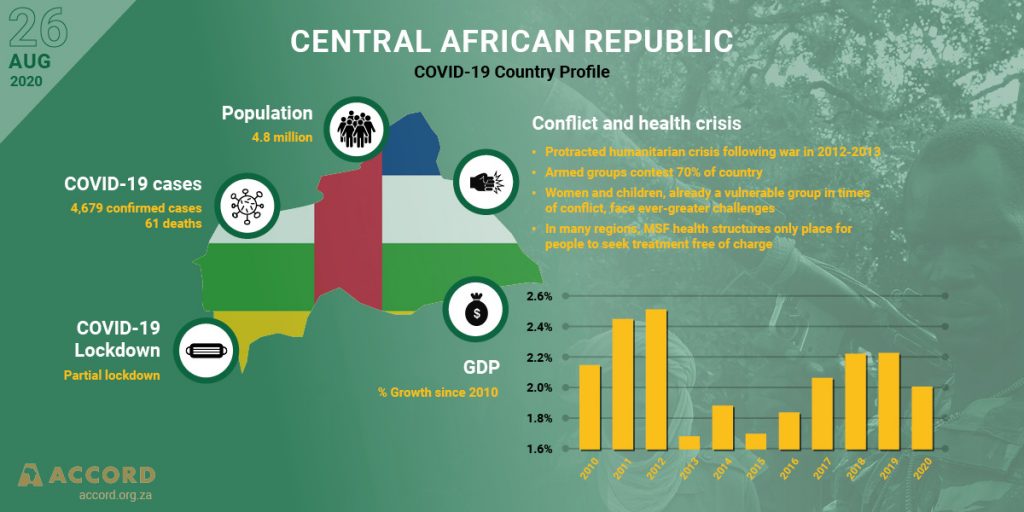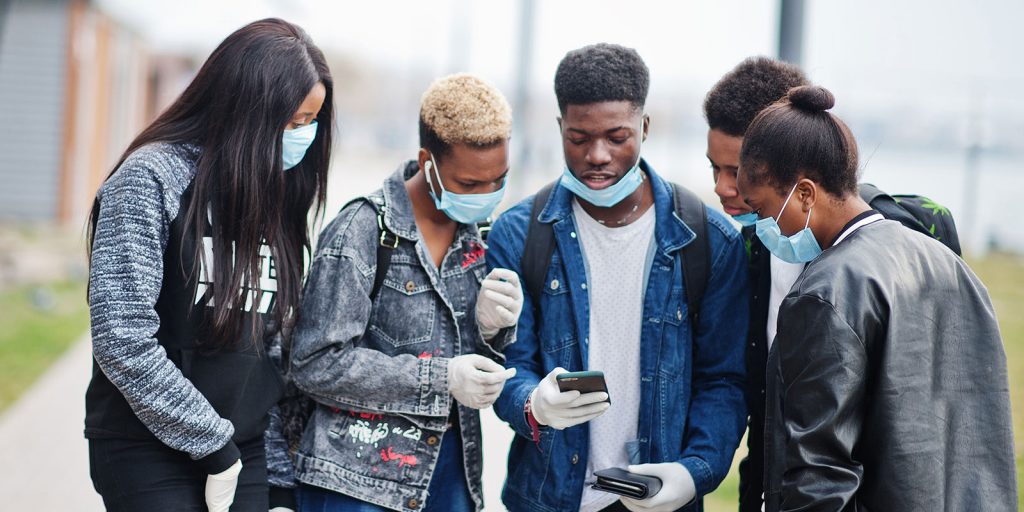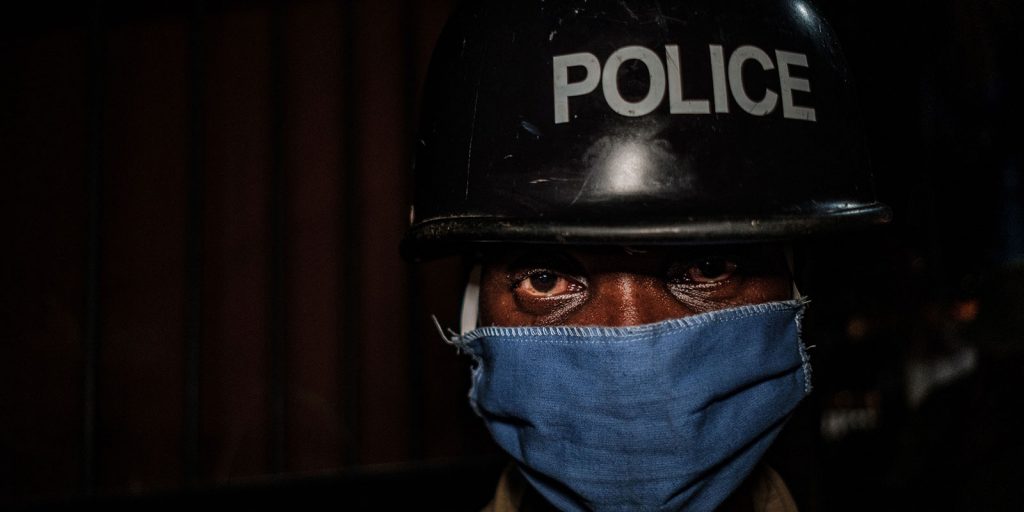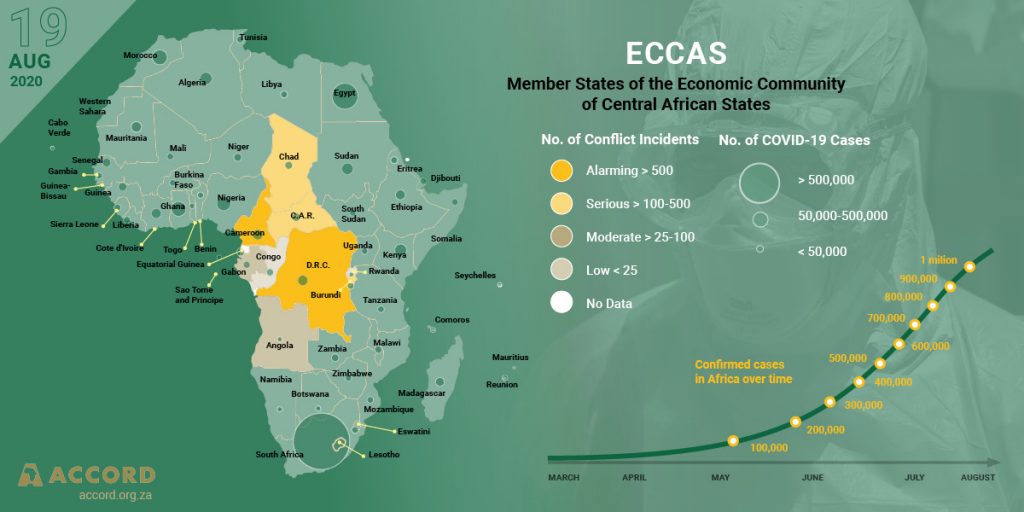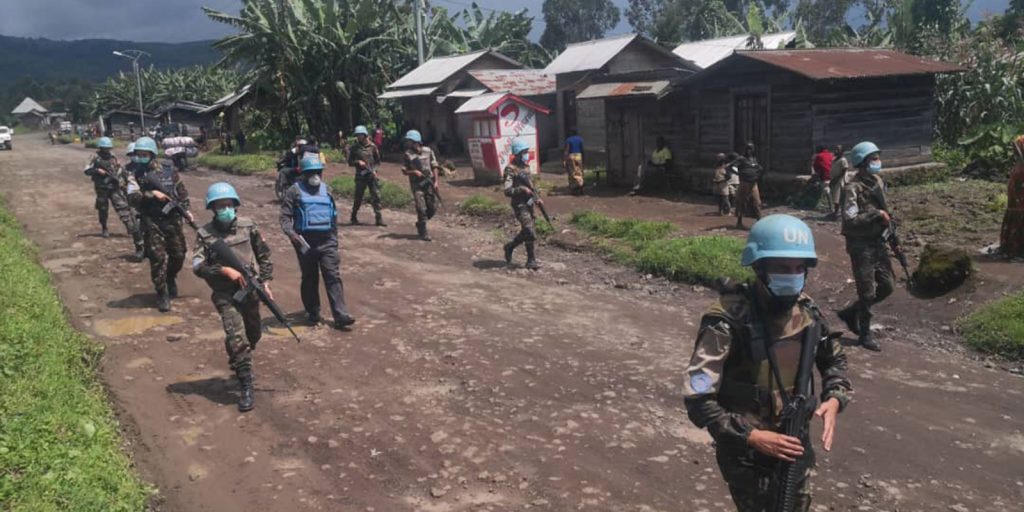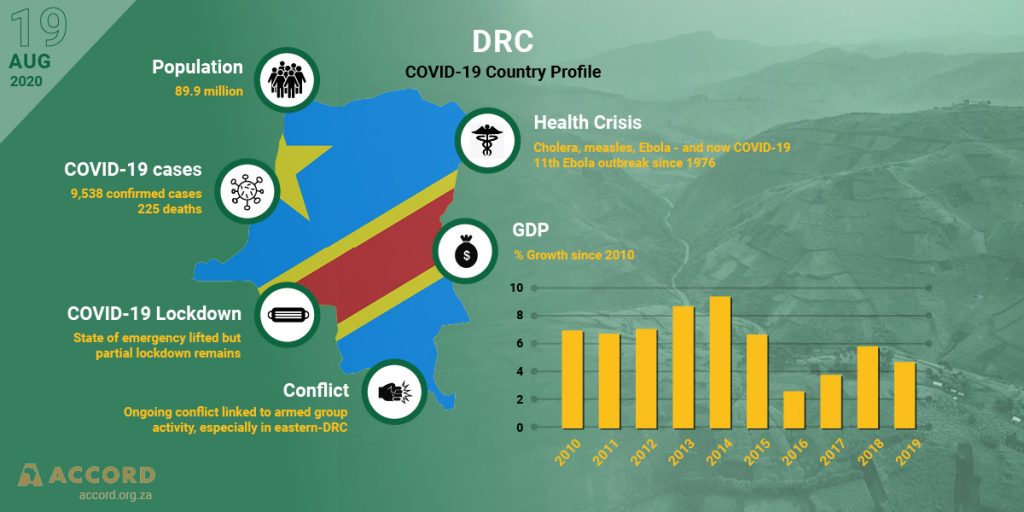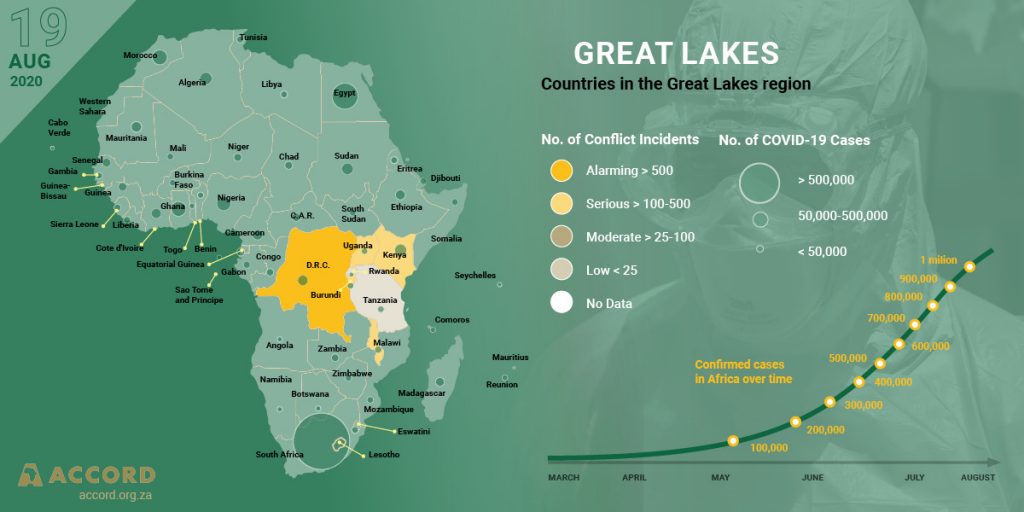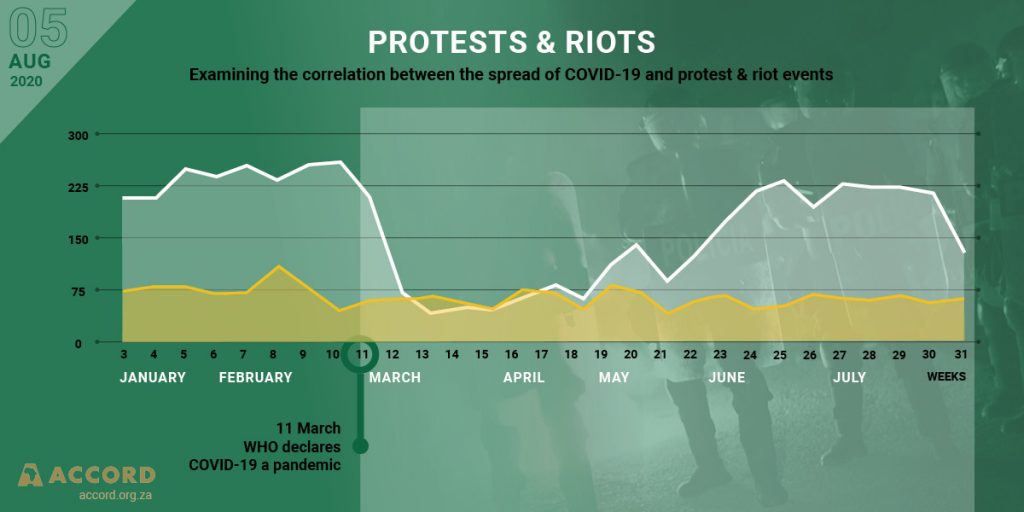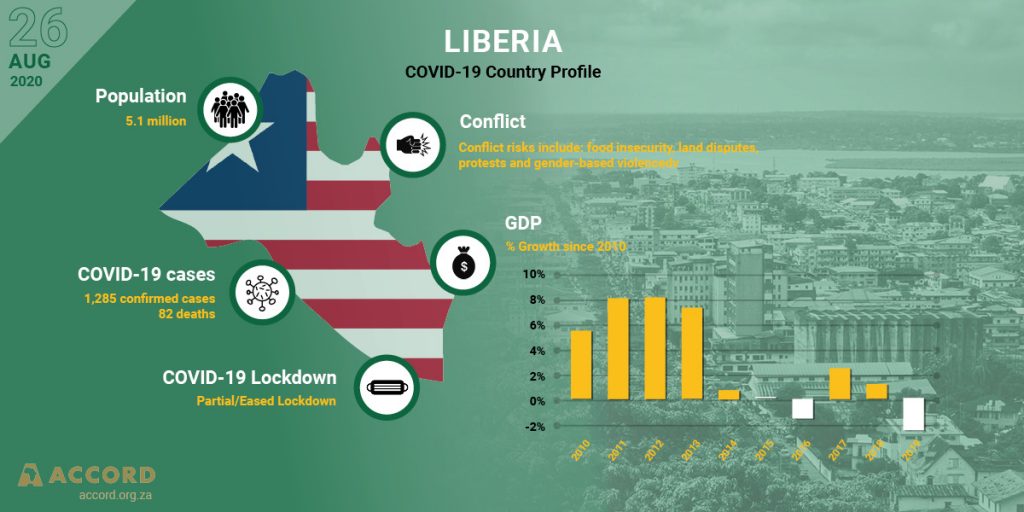
COVID-19-related conflict drivers and resilience mechanisms in Liberia
The Liberian Peacebuilding Office (PBO) undertook a COVID-19 Community Resilience and Conflict Sensitivity Monitoring assessment in July. The assessment revealed that the COVID-19 pandemic has increased the drivers of conflict and other early warning conflict factors across the country. In addition, the COVID-19 community conflict-mapping assessment has confirmed and further uncovered emerging conflict drivers – which, if not addressed in the short term, will undermine the fragile peace and the government’s response to COVID-19 emergency health efforts.

